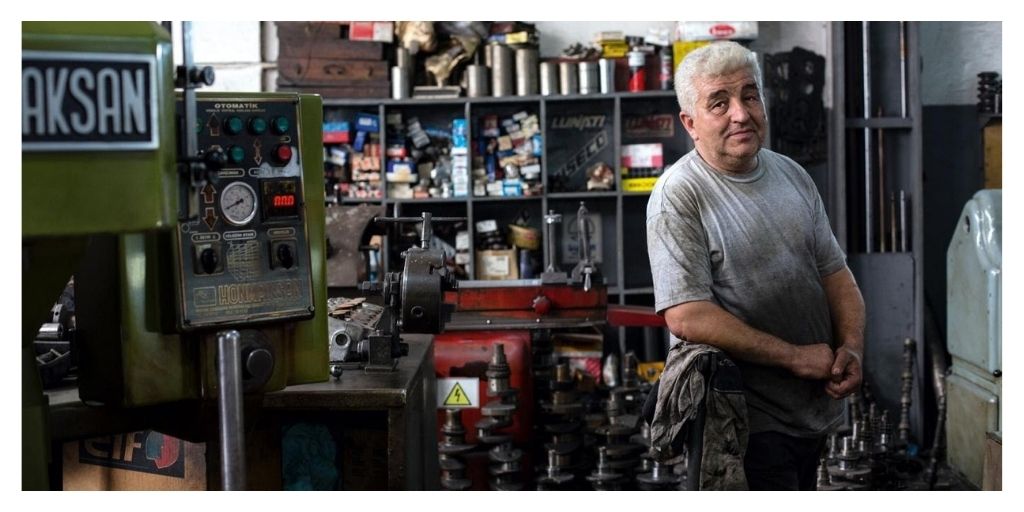What Happens When There’s a Fatal Accident at Work?
If you know someone who was fatally injured in an accident at work, there isn’t much you can do to fill that hole. The only think you can do is get some closure by determining what happened and rationalising it.

The goal of this post is to help you understand what a fatal accident is, and how they typically occur. Then, we’ll give you some advice on who is likely at fault and what your best options are for making a claim against them. To find out more, read on…
What Are Fatal Accidents and How do They Happen?
When someone gets into an accident that costs them their life, it is known as a fatal accident. They can occur almost anywhere; road traffic accidents, medical accidents, accidents at work, or sporting accidents to name a few.
In the UK, fatal accidents at work accounted for over half of all fatal injuries since 2001, with the top offenders being:
- Falls from a height
- Struck by a moving vehicle
- Struck by a moving object (includes falling or flying object)
- Trapped by something collapsing or overturning
- Contact with moving machinery
To narrow these fatal accidents down further, between 2015 and 2020 around 30 percent were to self-employed workers. These people worked mostly in agriculture, forestry and fishing, and construction. Self-employed workers had double the number of fatal accident cases than employed workers.

Who is Liable for a Fatal Accident?
Now that we have an idea of how these fatal accidents at work occur, it’s time to help you decide who is responsible for them.
Employers have a legal obligation to protect the health and safety of their workers. The laws are laid out in the Workplace (Health, Safety and Welfare) Regulations 1992. Some industries, such as construction, shipping, and mining, have special regulations due to their dangerous nature.
To fully comply with these regulations, employers have to carry out regular risk assessments and identify hazards that might compromise the safety of their workers. Once the assessment has been carried out, the employer must take measures to minimise these risks.
If the employer failed to carry out these risk assessments, forgot to put them in place or instructed your loved one to do perform a dangerous task, they could be held liable for any fatal accident they suffered as a result.
Your best chance of finding out the truth is a workplace accident book or witness statements that can determine whether the accident was avoidable.
Don’t worry too much about the employer trying to get one up on you and cover up the facts. In England and Wales, it is a legal requirement for all employers to have Employer’s Liability insurance which covers any compensation you claim from the company.
How Do You Make a Fatal Accident Claim Against an Employer?
At this point, you probably have a general idea of whether your loved one’s fatal accident was the fault of their employer. It’s now time to help you make a claim against them.
1. Determine if you’re eligible to make a claim
If you want to make a fatal accident claim, you have to fall into one of the following categories:
- A dependent of the deceased
- A non-dependent family member of the deceased
- The estate of the deceased
Basically, you have to either be related, be a financial dependent or be entitled to their estate in order to make a claim against their employer.
2. Hire a solicitor
Once you’ve determined whether you’re eligible to make a claim or not, it’s time to hire a solicitor. If you don’t have the money to hire expensive lawyers, don’t worry, there are lots of experts in this field who offer their services on a no-win no-fee basis.
These experts will help you determine whether the fatal accident was the fault of your employer or not. If they think there’s enough evidence, they’ll move on to the next stage.
3. The employer pays the liability or takes it to court
Your solicitors will notify your loved one’s employer and insurer, and liability with either be accepted or denied. If you have reasonable evidence to prove that the fatal accident was the mistake of the employer, the liability will likely be paid. It’s not worth the employer going to court when they have insurance to award compensation.
However, there’s always a chance the employer will refuse to pay the compensation, or refute the amount, and decide to go to court instead. At this point, it’s up to your solicitors to build a case and assist you in court.

What Compensation Can be Claimed for a Fatal Accident?
We’ve talked a lot about compensation for the fatal accident, but we haven’t explained exactly what damages you’re claiming and how much compensation is typically awarded. The damages you can claim for a fatal accident are:
- Funeral costs: including all of the expenses directly related to organising the funeral for your loved one, for example, the cost of the ceremony, the gravestone, and the coffin.
- Medical costs: including any costs that your loved one encountered medically before passing away, especially any private healthcare.
- Special damages: including any costs that you have sustained because of what has happened, for example, loss of future income and loss of any property because of the incident.
- General damages: including emotional suffering and any psychological trauma you have experienced due to losing a loved one. General damages are hard to measure.
How Much Compensation is Usually Rewarded for a Fatal Accident?
When it comes to how much compensation can be awarded, it’s important to note that each case is assessed on an individual basis. Below, we’ve provided some averages to give you a general idea.
Currently, the minimum possible amount is for funeral expenses at £3,000. The maximum is typically £10,000, but it can be higher in some cases.
The payment for the actual death is ranked by the amount of pain and suffering the loved one went through, which wouldn’t be appropriate to go into detail here.
A loss of benefits can result in anywhere between £5,000 and £500,000, loss of earnings between £10,000 and £400,000, and loss of care, protection and companionship for family members between £2,000 and £100,000.
Is Compensation the Only Recourse?
In this post, we’ve managed to cover what fatal accidents are, how you determine who is liable, and how you can make a claim against an employer. We’ve also given you an insight into the amount of compensation you’re likely to receive.
Unfortunately, in a situation like this, it’s rare that the employer will be tried for manslaughter. The only true recourse is monetary compensation.
The money will help make your life easier, especially if you relied on the deceased financially, but it won’t take away the pain of your loss. Hopefully, finding evidence around the death of your loved one will help you come to terms with it.
Thank you for reading this post, and good luck with your claim for a fatal accident at work.
Most Inside
Most Inside offers high-quality recommendations and valuable updates to enhance all aspects of your life, providing premium guidance and enriching experiences.




